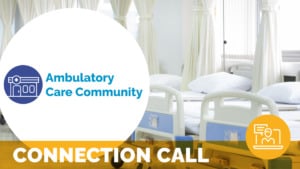Adapting and responding to a pandemic: Patient and family advisory councils in children’s hospitals during COVID-19
Published April 28, 2022


This mixed-methods study investigated the effects of the COVID-19 pandemic on Patient and Family Advisory Councils (PFACs) within children’s hospitals in the United States. Specifically, the study sought to understand how PFACs adapted operations as a result of the COVID-19 pandemic, how patient and family advisors (PFAs) were engaged in the response to COVID-19, and the intersection of the COVID-19 pandemic with PFAC diversity, equity, and inclusion. The study consisted of a survey distributed to 228 children’s hospitals, with a 73% response rate, and in-depth interviews with selected survey respondents (n=12). While COVID-19 temporarily disrupted PFAC operations and forced rapid adaptations, most children’s hospital PFACs transitioned successfully to virtual meetings, with 86% reporting that their PFAC met at least once from March to December 2020 and 84% indicating that their PFAC planned to meet as frequently or more frequently than before the pandemic. The majority of respondents (72%) reported that attendance at virtual PFAC meetings was the same as or better than with in-person meetings. Interview participants reported benefits associated with virtual meetings, including the potential ability to recruit and engage PFAs who better reflected the diversity of the patients and families served by the hospitals. Children’s hospitals are well-positioned to be leaders in the field, contributing to the development of new approaches, lessons learned, and best practices moving forward. This is especially true as hospitals continue to navigate the evolving realities of the COVID-19 pandemic, and as PFACs address challenges associated with maintaining diverse, equitable, and inclusive councils.
Related content
-
Culture & Leadership | Patient Family & Community Engagement
Ambulatory Care Community Connection Call – Rounding Best Practices
Published October 29, 2025

2:00pm ET / 1:00pm CT / 12:00pm MT / 11:00am PT – While rounding is a well-established practice in acute care, ambulatory leaders continue to voice the need for similar approaches in outpatient settings. Rounding, whether with patients, staff, or both, can play a vital role in improving communication, engagement, and overall experience. Join the
Learn more -
Patient Family & Community Engagement
The Impact of Learners on Patient Satisfaction in the Orthopedic Setting
Published May 4, 2025

This investigation evaluates the impact of learners and their post-graduate year (PGY) levels on patient satisfaction in the orthopedic outpatient clinic, an area with limited prior research. A retrospective cohort study was conducted using data from July 2020 to December 2022, involving 2,484 patients, with a 39% response rate. Satisfaction was measured via NRC Health
Learn more -
Patient Family & Community Engagement
Amplifying Patient Voices: The Voices of Experience Podcast at Tampa General Hospital
Published January 12, 2025

By Amber Washington At Tampa General Hospital, we believe every patient and family has a story worth sharing that hold the power to transform healthcare. That is why we created the Voices of Experience Podcast, an inspiring platform to amplify these voices, foster collaboration, and advance the conversation about patient-centered care. What Is the Voices
Learn more
